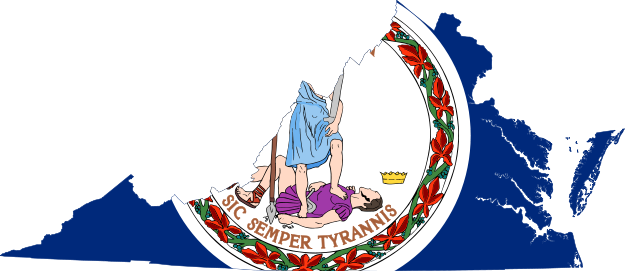The past few months have seen a flurry of developments as to the extent to which Daubert and its progeny are authoritative in Virginia state court proceedings.
First, as I discussed in a blog post on May 17, 2015:
The Virginia Supreme Court recently issued its ruling in Hyundai Motor Company v. Duncan, 766 S.E.2d 893 (2015) which cited the United States Supreme Court case of General Elec. Co. v. Joiner, 522 U.S. 136 (1997). General Elec. Co. is significant because it interpreted Daubert and expanded on its holding. The Virginia Supreme Court in turn justified its citation of General Elec. Co. by noting that that case was decided under the version of Rule 702 of the Federal Rules of Evidence that the Virginia General Assembly adopted, verbatim, in Virginia Code Section 8.01-401.3(A) (which serves as the basis for several Virginia rules of evidence). In short, by citing one of the key rulings in the progeny of Daubert, the Virginia Supreme Court appears to have indicated that Daubert and its progeny are authoritative sources of law governing the admissibility of expert testimony in Virginia state court proceedings.
In that same blog post, I noted some cautions about the Virginia Supreme Court’s holding:
But questions remain. First, the Virginia Supreme Court did not explicitly adopt the Daubert standard. This raises the question of to what extent Daubert and its progeny are authoritative in Virginia state court. Second, Federal Rule of Evidence 702 was amended in 2011, thereby calling into question to what extent attorneys should cite post-2011 Daubert-line decisions in Virginia state court, since the Virginia Supreme Court noted in Hyundai Motor Company that the Virginia General Assembly adopted Virginia Code Section 8.01-401.3(A) verbatim based off the old pre-2011 Federal Rule 702. It will be interesting to see how these issues develop
Shortly after the Virginia Supreme Court handed down its holding in Hyundai Motor Company, the Virginia General Assembly responded by passing House Bill 1476 and Senate Bill 861, which were signed by the governor on March 17, 2015. They provide: “Nothing in this act, § 8.01-401.2:1, or § 8.01-401.3 shall be construed as a codification of Rule 702 of the Federal Rules of Evidence as presently construed.”
In a Virginia Lawyers Weekly article discussing the new legislation (subscription required), numerous delegates are quoted as stating that the intent of the new law is to codify that Daubert and its progeny are not law in Virginia. I was quoted in the same Virginia Lawyers Weekly article as pointing out a potential problem with the language in the law: the clause “as presently construed.” My concern centers on the fact that by using the language ‘as presently construed’ in reference to Rule 702 of the Federal Rules of Evidence, it’s unclear whether, as it relates to interpreting Rule 2:702 of the Virginia Rules of Evidence, Daubert and its progeny (up to the present) are not being rejected, but the law is simply providing that no future federal case law interpreting Federal Rule 702 is authoritative. If that’s the case, then the new law would appear to effectively sanction the Virginia Supreme Court’s ruling in Hyundai Motor Company (as to the apparent applicability of Daubert and its progeny in interpreting Rule 2:702 of the Virginia Rules of Evidence), but would limit such to the current case law interpreting Daubert, such that no future cases interpreting Federal Rule of Evidence 702 would be authoritative in interpreting Rule 2:702 of the Virginia Rules of Evidence.
The next development came a few weeks ago when the Virginia Court of Appeals issued its ruling in Padula-Wilson v. Wilson, 2015 WL 1640934 (Va. Ct. App. 2015) that held that “Virginia has not adopted the framework for admissibility of scientific evidence provided in Daubert.” Id. at *8. Notably, the unpublished holding by the Virginia Court of Appeals did not even address or otherwise mention the Virginia Supreme Court’s holding in Hyundai Motor Company, which was issued just months earlier.
To sum up this flurry of activity: first, in January 2015, Virginia Supreme Court appeared to hold (without explicitly stating such) that Daubert and its progeny are authoritative in state court proceedings. Then, in March 2015, the General Assembly appeared to have repudiated such a holding (I say appeared because of the ambiguity surrounding the phrase “as presently construed”). Then, in April 2015, the Virginia Court of Appeals held, in an unpublished opinion that failed to even consider Hyundai Motor Company, that Virginia has not adopted the Daubert standard.
What’s an attorney to do? I think the best course of action is that which I recommend in the Virginia Lawyers Weekly article:
As a practical matter, given the uncertainty surrounding the Virginia Supreme Court’s ruling in [Hyundai Motor Company], coupled with the ambiguity surrounding the new law, the best practice for Virginia litigators is likely to avoid any citations to Daubert and its progeny in construing Rule 2:702 of the Virginia Rules of Evidence, so as to avoid creating a potential appealable issue centering on the extent to which Daubert and its progeny are authoritative sources construing Rule 2:702.

 The Virginia Supreme Court recently issued its ruling in
The Virginia Supreme Court recently issued its ruling in 

